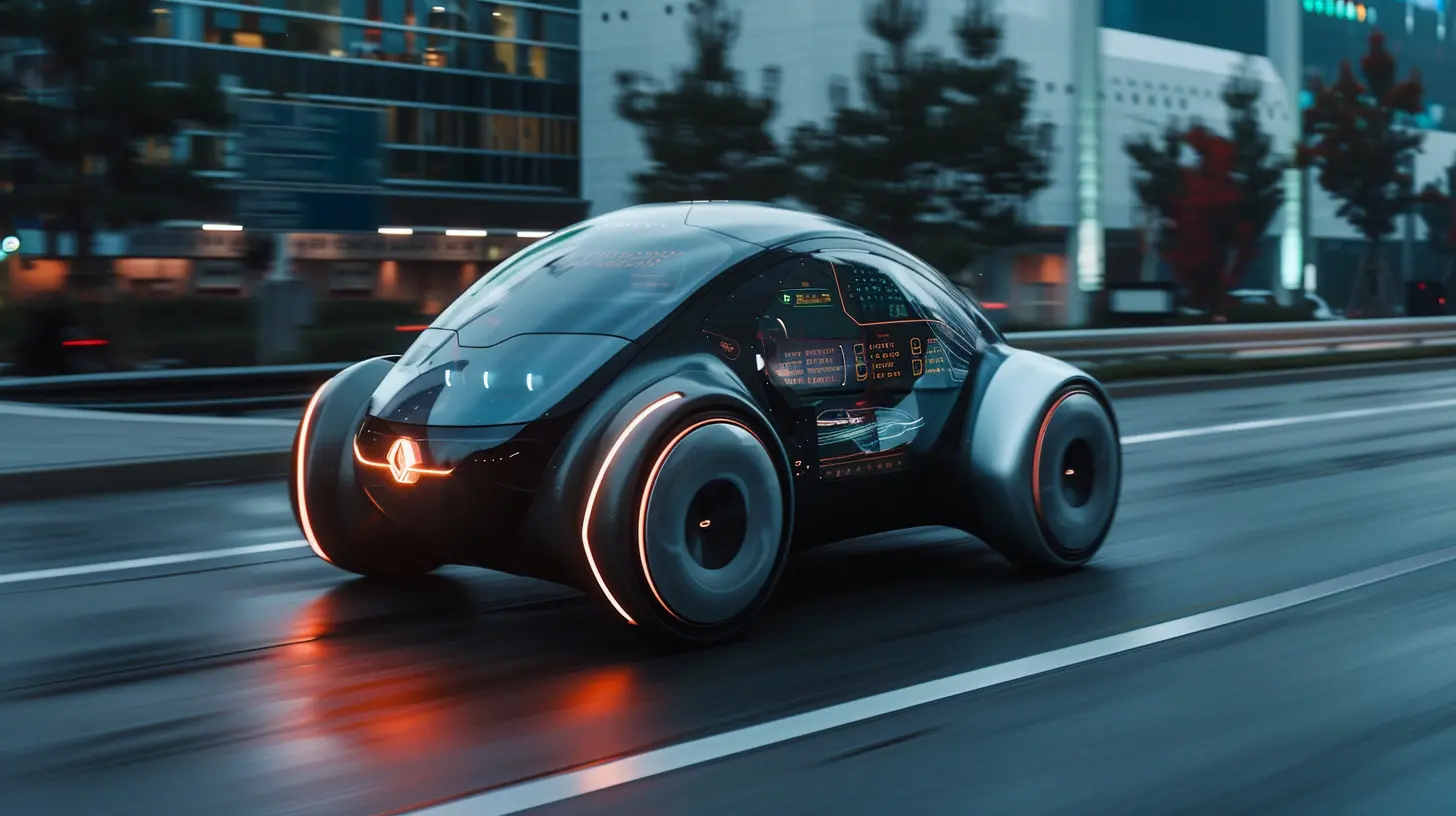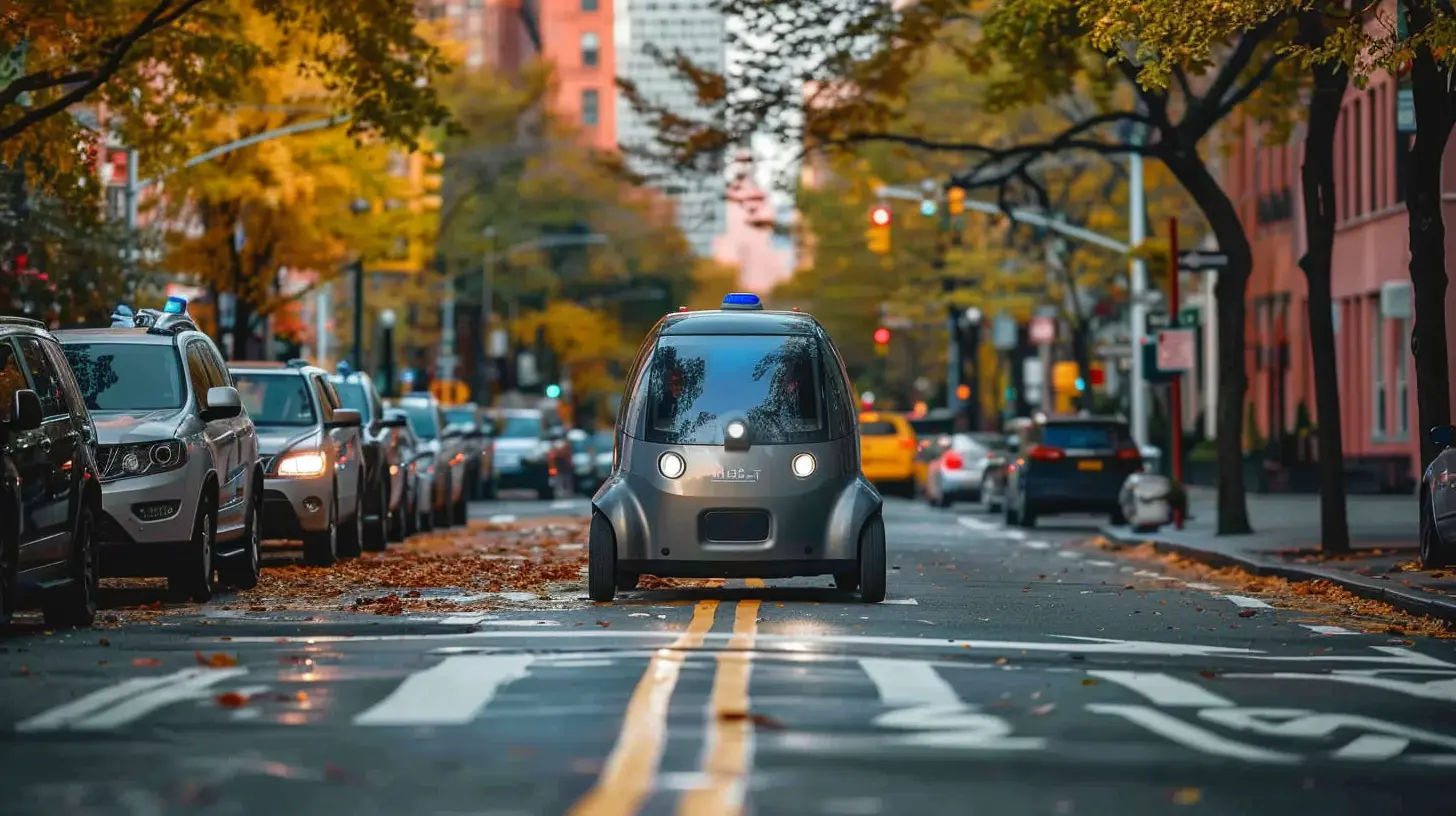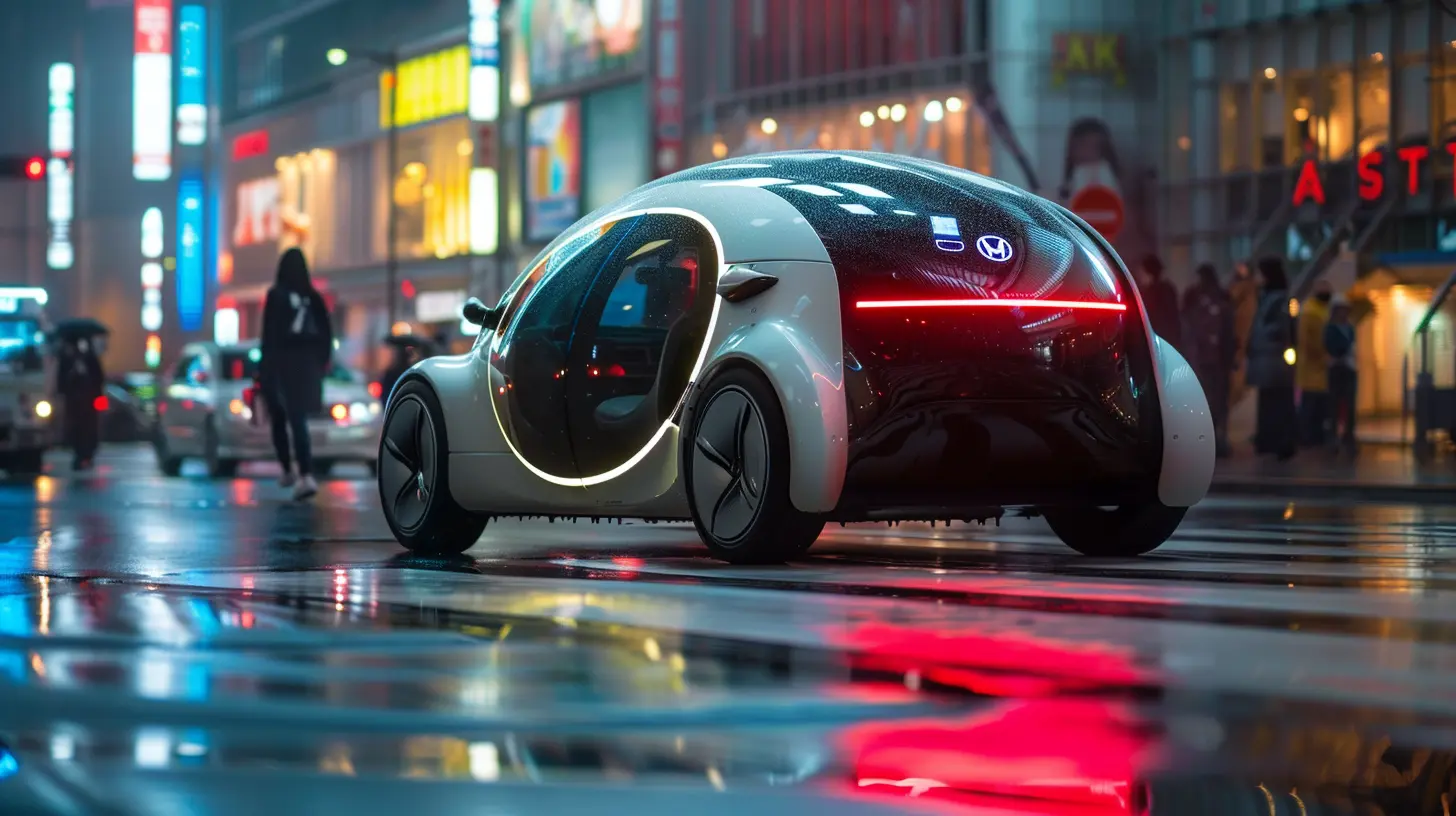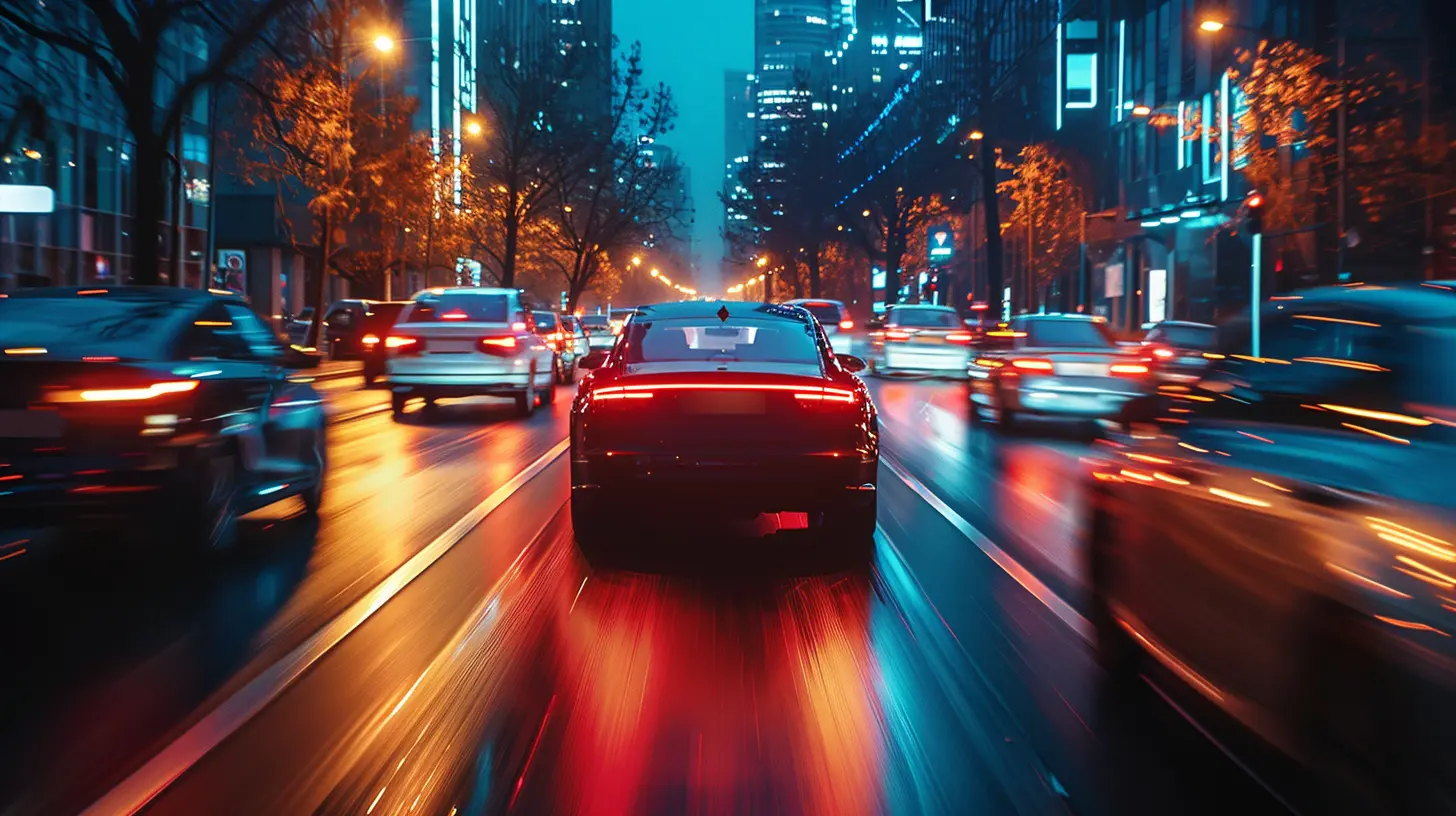How Autonomous Driving Will Change the Auto Insurance Industry
13 March 2025
Autonomous driving is no longer a futuristic dream; it’s already here, and it's about to shake up the auto industry in ways we couldn’t have imagined. But there’s something else that’s going to change along with it—auto insurance. Yep, the way we insure cars is going to look wildly different in the coming years, all thanks to self-driving technology. So, let’s dive into how autonomous driving will change the auto insurance industry and what it means for you.

What Is Autonomous Driving?
Before we get into the nitty-gritty of insurance, let’s quickly recap what autonomous driving actually is. In simple terms, autonomous driving refers to vehicles that can operate without human intervention. You’ve probably heard terms like "self-driving cars" or "driverless cars" thrown around, but they all mean the same thing—cars that can drive themselves, using a combination of sensors, cameras, and artificial intelligence (AI) to navigate the roads.There are different levels of autonomy, ranging from Level 0 (no automation) to Level 5 (full automation). Right now, most of the cars we see on the road are somewhere between Level 2 and Level 4, meaning they still require some level of human supervision. However, we're inching closer to full autonomy, and that’s where things get really interesting for the auto insurance industry.

The Current State of Auto Insurance
Let’s first take a look at how traditional auto insurance works. Right now, insurance companies assess risk based on a variety of factors like your driving history, age, location, and even your credit score. These factors help them figure out how likely you are to get into an accident, and then they set your premium accordingly. In other words, if you’re a high-risk driver, you’ll pay more for insurance, and if you have a squeaky-clean driving record, you’ll pay less.The majority of insurance claims today are related to human error—speeding, distracted driving, or just plain carelessness. But with autonomous driving, everything is about to change because, well, humans won’t be driving anymore!

How Will Autonomous Driving Impact Auto Insurance?
1. Fewer Accidents, Lower Premiums?
One of the most appealing promises of autonomous vehicles is that they’ll drastically reduce the number of traffic accidents. According to the National Highway Traffic Safety Administration (NHTSA), about 94% of serious crashes are due to human error. Take humans out of the equation, and you’ve got a lot fewer accidents on the road.Fewer accidents mean fewer insurance claims, which could, in theory, result in lower premiums for drivers. After all, if the risk goes down, so should the cost of insurance, right? It seems like a win-win situation for both consumers and insurance companies.
But before you start celebrating those lower premiums, there’s a catch. With autonomous cars, the question of liability becomes a little more complicated.
2. Who’s Liable in a Self-Driving Car Accident?
Here’s where things get tricky. In a world where cars are driving themselves, who’s to blame when something goes wrong? Is it the car manufacturer? The software provider? The car owner? Or maybe even the local municipality if there’s an issue with road infrastructure?In traditional accidents, liability is usually pretty straightforward—if you rear-end someone, you’re at fault. But with self-driving cars, the lines get blurred. If an autonomous vehicle malfunctions and causes a crash, it’s very possible that the manufacturer of the vehicle or the software developer could be held liable, rather than the owner of the car.
This shift in liability could lead to a rise in product liability insurance claims, meaning manufacturers and tech companies may need to take on more of the insurance burden. Auto insurance companies may find themselves playing a smaller role in covering individual drivers, while product liability insurers could step into the spotlight.
3. New Insurance Models Will Emerge
As autonomous driving becomes more common, we’re likely to see new types of insurance models emerge. Traditional auto insurance policies may become obsolete, and insurers will need to adapt. Here are a couple of potential models we might see:Usage-Based Insurance (UBI)
Usage-based insurance isn’t a new concept, but it could become the norm with autonomous vehicles. Essentially, UBI calculates premiums based on how much you actually use your car and how safely the car operates. Since autonomous cars will be equipped with tons of sensors and data collection tools, insurers will have a wealth of information to assess risk. Instead of paying a flat rate for insurance, you might pay based on the number of miles you drive or the times of day you’re on the road.Pay-Per-Ride Insurance
Another model that could emerge is pay-per-ride insurance, where you only pay for coverage when you’re actually using the car. This could work particularly well with autonomous ride-sharing services like those being developed by companies like Tesla and Waymo. If you only hop into a self-driving car every now and then, why pay for a full year of coverage? Instead, you could be charged a small fee for each ride to cover the cost of insurance.4. The Rise of Cybersecurity Insurance
Autonomous vehicles rely heavily on software, which makes them vulnerable to hacking and cyberattacks. Imagine a hacker taking control of a self-driving car on the highway—scary, right? As the risk of cyber threats grows, so too will the need for cybersecurity insurance.In addition to covering physical damage or injuries caused by a cyberattack, cybersecurity insurance could also protect against data breaches. Autonomous vehicles collect a ton of data about their passengers and surroundings, and if that data falls into the wrong hands, it could be a privacy nightmare. Insurance policies will likely need to evolve to cover these types of cyber risks, which are only going to become more prevalent as cars become more connected.
5. Changes in Car Ownership and Ride-Sharing
Autonomous driving could also change the way we think about car ownership. With ride-sharing services like Uber and Lyft already becoming more popular, it’s not hard to imagine a future where many people don’t own cars at all. Instead, they could rely on fleets of autonomous vehicles to get around.If car ownership declines, personal auto insurance might become less important, and fleet insurance could take center stage. Companies that operate fleets of autonomous vehicles would need to insure their entire fleet, rather than individuals insuring their personal cars.
6. Transition Period: A Mix of Autonomous and Human-Driven Cars
It’s important to remember that the shift to fully autonomous driving won’t happen overnight. For many years, we’ll have a mix of human-driven cars and autonomous vehicles sharing the roads. This transition period could be particularly challenging for insurance companies, as they’ll need to develop policies that account for both types of vehicles.During this time, traditional auto insurance will still be necessary, but it will likely need to evolve to account for the unique risks posed by autonomous cars. For example, how do you calculate premiums when a human driver is only in control of the vehicle part of the time? Insurers will need to figure out how to assess risk in this hybrid environment.

What Does the Future Hold?
The auto insurance industry is on the brink of a major transformation. As autonomous driving technology continues to develop, insurance companies will need to rethink how they assess risk, determine liability, and price their policies. While fewer accidents and lower premiums might seem like a given, the reality is that the future of auto insurance is far from straightforward.Manufacturers and tech companies will likely take on more responsibility, new insurance models will emerge, and cybersecurity will become a top priority. And, of course, there’s the question of how long it will take for autonomous vehicles to become mainstream. Will we see fully autonomous cars dominating the roads in the next decade, or will human-driven cars stick around for a while longer?
Only time will tell, but one thing’s for sure—the auto insurance industry is about to experience some big changes.
Conclusion
Autonomous driving is set to revolutionize not just the way we travel, but also the way we insure our vehicles. With fewer accidents, shifting liability, and new insurance models on the horizon, the auto insurance landscape is poised for a major shake-up. As drivers, manufacturers, and insurance companies adapt to this evolving technology, we’ll undoubtedly see both challenges and opportunities emerge.So, buckle up—because the road ahead, although autonomous, is going to be anything but predictable!
all images in this post were generated using AI tools
Category:
Autonomous VehiclesAuthor:

John Peterson
Discussion
rate this article
14 comments
Rebecca McGrath
As autonomous vehicles revolutionize our roads, the insurance landscape faces an enigmatic shift. Will liability slip from drivers to manufacturers? The convergence of technology and risk opens uncharted territories, raising questions about accountability, premiums, and the very definition of safety.
April 7, 2025 at 10:35 AM

John Peterson
Absolutely, the shift to autonomous vehicles will fundamentally transform liability and risk in auto insurance. Manufacturers may bear more responsibility, prompting a reevaluation of accountability and premium structures as we redefine safety standards.
Caitlin Torres
Autonomous driving will significantly reshape risk assessment and pricing in auto insurance.
April 7, 2025 at 5:00 AM

John Peterson
Absolutely! Autonomous driving will shift the focus of risk assessment from driver behavior to technology reliability, leading to new pricing models based on vehicle performance and data analytics.
Valentina Bass
Exciting times ahead! As autonomous driving takes the wheel, our auto insurance landscape will shift dramatically. Embrace the ride into innovation, where safer roads mean smarter policies. Let’s buckle up for a future where insurance is simpler, fairer, and way more fun! Here’s to driving into a brighter tomorrow! 🚗✨
April 5, 2025 at 8:38 PM

John Peterson
Absolutely! The shift to autonomous driving promises not only enhanced safety but also a transformative evolution in auto insurance, leading to more innovative and equitable solutions. Exciting times ahead indeed! 🚗✨
Audrey Kim
“Sure, let’s just trust robots to drive while we sip coffee and analyze our premiums!”
April 3, 2025 at 8:41 PM

John Peterson
Autonomous driving will enhance safety and reduce accidents, ultimately leading to lower premiums and a shift in insurance models, making it a promising change for the industry.
Renata McClary
Get ready for auto insurance agents to swap their calculators for crystal balls! With autonomous driving, they might need to start insuring against 'unexpected karaoke sessions' instead!
April 2, 2025 at 1:02 PM

John Peterson
That's a fun take! The shift to autonomous driving will definitely bring new challenges—and opportunities—for insurance agents as they adapt to emerging risks.
Yvonne McCaffrey
Autonomous driving: the only time your car gets into a fender bender and you don’t have to explain to the insurance agent why you were munching on a donut while ‘driving’! Let’s just hope the self-driving car has a good excuse!
March 30, 2025 at 3:34 AM

John Peterson
Ha! True, but the real challenge will be figuring out liability and insurance coverage when the car itself is at fault.
Ronan McLemore
Finally, no more arguing with a robot over who’s at fault—sweet!
March 28, 2025 at 8:47 PM

John Peterson
Glad to hear you're excited! Autonomous driving will certainly bring a new perspective to fault and liability in insurance.
Seraphine McIlwain
Autonomous driving will revolutionize auto insurance, redefining risk and liability assessment entirely.
March 26, 2025 at 11:35 AM

John Peterson
Absolutely! Autonomous driving will shift the risk from drivers to manufacturers and technology, prompting a complete overhaul of liability and assessment in the insurance landscape.
Julia Hughes
Autonomous driving will reshape risk assessment, challenging traditional insurance models and coverage structures.
March 26, 2025 at 3:57 AM

John Peterson
Absolutely, autonomous driving will necessitate a fundamental rethink of risk assessment and insurance models, as the focus shifts from driver behavior to technology performance and liability.
Delia McPherson
Exciting times ahead! Autonomous driving will revolutionize auto insurance, enhancing safety and creating innovative solutions for a more secure future.
March 25, 2025 at 1:54 PM

John Peterson
Absolutely! Autonomous driving will indeed reshape auto insurance by prioritizing safety and fostering innovative solutions tailored to this new landscape.
Camden Wilson
Will autonomous cars make insurance agents obsolete, or should we just insure our coffee cups?
March 25, 2025 at 4:13 AM

John Peterson
While autonomous cars may shift the insurance landscape, they won't eliminate insurance agents entirely. Instead, they'll adapt to new roles, focusing on policy development and risk assessment in a changing environment. Insuring coffee cups might be a stretch, but unique coverage options could emerge!
Stephanie Meyers
Autonomous driving will reshape risk assessment and insurance pricing models.
March 23, 2025 at 7:22 PM

John Peterson
Absolutely! Autonomous driving will necessitate a reevaluation of risk factors, leading to more accurate insurance pricing based on technology reliability rather than driver behavior.
Roxanne Reynolds
Autonomous driving will revolutionize the auto insurance industry by shifting focus from driver behavior to vehicle technology and manufacturer liability. Insurers must adapt rapidly to this paradigm shift to remain competitive and relevant in a driverless future.
March 22, 2025 at 7:19 PM

John Peterson
Absolutely! The rise of autonomous driving will indeed transform the auto insurance landscape, compelling insurers to prioritize vehicle technology and manufacturer accountability over traditional driver behavior. Adapting to this shift is essential for staying competitive in the evolving market.
Mary McCaw
This article highlights an essential shift in the auto insurance landscape due to autonomous driving. However, it overlooks the ethical implications and liabilities surrounding AI decisions. As technology evolves, the insurance model must adapt not only to risk but also to accountability and transparency.
March 21, 2025 at 9:16 PM

John Peterson
Thank you for your insightful comment! You're right; addressing ethical implications and liabilities is crucial as we navigate the evolving landscape of autonomous driving in auto insurance. Your feedback highlights an important area for future exploration.
MORE POSTS

Overcoming Challenges in Robotic Process Automation Adoption

Debunking Common Myths About Robotic Process Automation
Wearable Tech for Health: A Review of the Top Fitness Trackers

Headphones for Fitness Enthusiasts: What You Need to Know

Battery Storage Solutions for the Renewable Energy Transition

Essential Developer Tools Every Coder Should Have in Their Toolkit

In-Depth Review of the Most Popular Mechanical Keyboards for Work and Play

The Role of Battery Tech in Smart Cities

Fintech Innovations Driving the Future of Retirement Planning